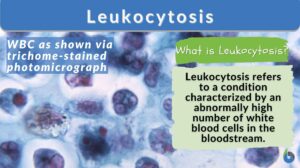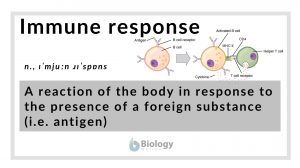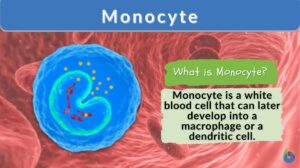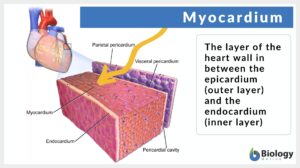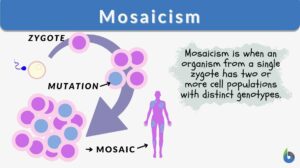Search Results for: autoimmune disease
Autoimmune disease
Definition noun, plural: autoimmune diseases A type of disease as a result of an immune response of the body against own... Read More
Autoimmunity
Definition noun, plural: autoimmunities A type of immunity wherein the immune response is directed against own body,... Read More
Leukocytosis
What Is Leukocytosis? Leukocytosis is a condition wherein the number of White Blood Cells (WBCs) is increased above the... Read More
Predisposing factors
All organisms can be born with or develop a disease at any point in their lifetime. When someone is born with a disease, it... Read More
Polygenic disease
Definition noun An inherited disease determined by the effects of the simultaneous action or interaction of several... Read More
Y chromosome
Y chromosome Definition The Y chromosome constitutes one member of the pair of sex chromosomes within an organism, a common... Read More
Parasitism
Organisms depend on different sources of food to survive. Larger organisms like plants make their own food (autotrophs) and... Read More
Immune response
Immune Response Definition An immune response is defined as the reaction of the body in response to the presence of a... Read More
Galacto-oligosaccharide
Definition noun plural: galacto-oligosaccharides ga·lac·to·ol·i·go·sac·cha·ride An oligosaccharide made up of... Read More
Sarcolemma
Sarcolemma Definition What is the sarcolemma? It is the thin, transparent, extensible plasma membrane of the muscle cell.... Read More
Erythrocyte
Erythrocyte Definition Erythrocytes (red blood cells or RBCs) are the myeloid series of specialized cells that play an... Read More
Granulocytosis
Definition noun An increase in the number of circulating granulocytes in the bloodstream. Supplement Granulocytosis is a... Read More
Cell adhesion
Cell Adhesion Definition Cell adhesion is the process in which a cell uses a specialized complex of proteins to get... Read More
Autoantigen
Definition noun, plural: autoantigens An endogenous antigen that is recognized as nonself by the immune system, which should... Read More
Self antigen
Definition noun, plural: self antigens An exogenous antigen that is recognized as nonself by the immune system, which should... Read More
Glycolysis
What is Glycolysis and Why is it Important? Glycolysis is a metabolic pathway by which the 6-carbon molecule of glucose is... Read More
Myocardium
Myocardium Definition What is the myocardium of the heart? It is the muscular middle layer of the heart that is... Read More
Haemophilia
Definition noun A condition that is characterized by uncontrolled bleeding from the mouth, gums, lips, and tongue,... Read More
Smooth muscle
The smooth muscle can be described as a type of muscle in the human body that is non-striated and involuntary in action.... Read More
Integumentary system
Integumentary System Definition The integumentary system is the outermost layer of the body. The animal body, in... Read More
Axon hillock
Axon Hillock Definition What is axon hillock? If you are familiar with the different parts of the neuron, the axon hillock... Read More
Xerophthalmia
Definition noun Excessive dryness of the cornea and conjunctiva Supplement The dryness of the eyes is associated with the... Read More




